The mental and emotional strain of families being cooped up together due to the COVID-19 pandemic will resonate with anyone in the world today. Weaving a compelling, unique story out of it is a different challenge.
Building on the acclaim of the multiple-Golden Horse winning A Sun (陽光普照), Chung Mong-hong (鍾孟宏) delivers another slow-burning yet poignant and intense family drama that’s beautifully shot with masterful use of lighting and color. The building that the protagonists live in stands out from the cityscape as it’s covered with a blue construction tarp for most of the movie, bathing the living room in a dark, cold tone that contrasts with the otherwise warm lighting. Perhaps it represents the facemasks that they have to wear even indoors, both literally and figuratively.
A Sun mainly dealt with father-and-son relationships, while The Falls features single mother and office executive Pin-wen (Alyssa Chia, 賈靜雯) and her high school age daughter Xiao Jing (Gingle Wang, 王淨) who are forced to stay at home together after Xiao Jing’s classmate catches the virus. Chung’s films are usually male-heavy, dealing with their feelings of isolation and insecurity, and this is the first time he’s headlining female characters — although it still feels like it’s being portrayed from a male perspective.
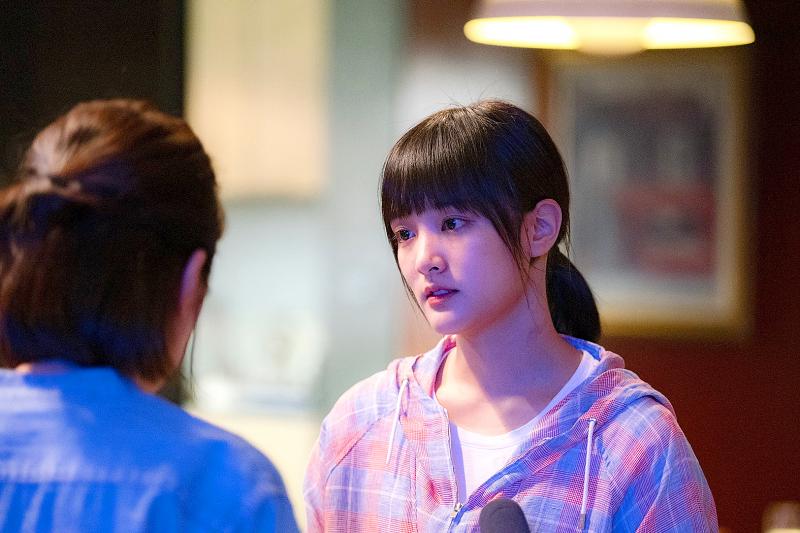
Photo courtesy of 3 NG Film
The Falls lacks the suffocating tension that almost brings time to a halt in A Sun, which flows more smoothly and feels more suspenseful as the audience is constantly wondering when the characters will reach their limits and snap. In both films, repressed family members who are incapable of expressing themselves are forced to open up to each other, and for better or for worse it makes their relationships tighter.
Pin-wen, who still pines for her ex-husband, cannot handle Xiao Jing’s impertinent behavior, and coupled with problems at work, her mental state begins to fall apart. Chia handles this complex role masterfully, convincingly portraying her deteriorating condition. She does a subtle and nuanced job, providing a touching portrait of a middle-aged woman in an existential crisis. This fate is quite common in Taiwanese society as many women that age are still expected to quietly take on the family burden. Meanwhile, her husband (Lee Lee-zen, 李李仁) simply gets remarried, and her stress and despondency is apparent.
Xiao Jing notices this, and she and her mother’s roles suddenly become reversed after just one incident. This drastic transformation from spoiled brat to an extremely responsible and caring person without much difficulty is one of my gripes about the film, as it makes Wang’s character rather one dimensional and the story less dynamic. Despite this, it’s hard not to be sympathetic toward Xiao Jing, and you really end up sitting on the edge of your seat the whole two hours hoping that things turn out all right for her.
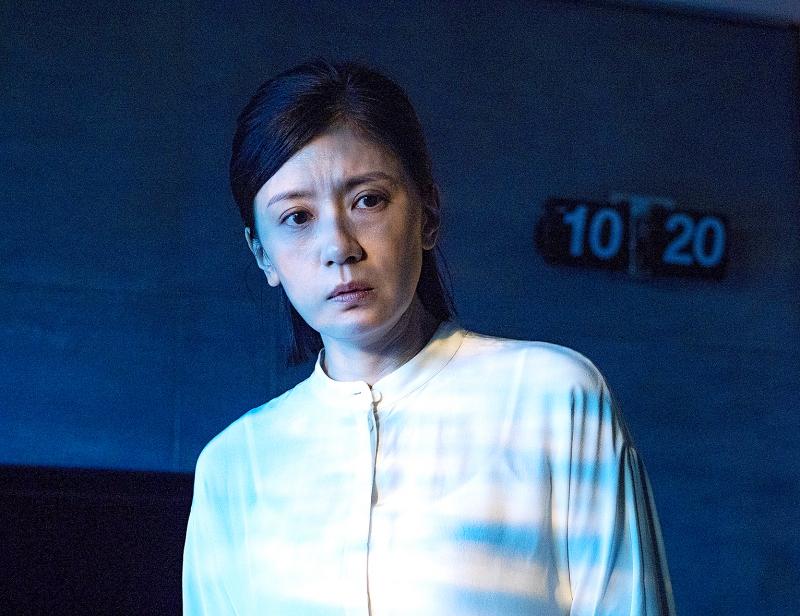
Photo courtesy of 3 NG Film
Still, there’s something missing. Despite the stunning cinematography, masterful use of mood and tension, relevant social commentary and great acting, the plot just feels flat, more like a winding stream than a waterfall. Every time it seems like something dramatic is about to happen, it doesn’t, and even the most dire situations are solved without a hitch. It almost feels insulting to the women, especially as they are often helped by men, while Chung’s male characters in other films have to go through a lot more to just scrape by.
Chung’s favorite actors all make cameos in the film, with Chen Yi-wen (陳以文) playing the largest role as Pin-wen’s new boss and potential love interest. Chen is great as usual, but the inclusion of familiar faces in bit roles (store clerk, firefighter, etc) is rather distracting and irritating as they are already seen in just about every other Taiwanese feature film.
Nevertheless, The Falls is another strong effort by Chung that’s relevant and illuminating, especially toward mental health, and is good enough to be selected as Taiwan’s entry to the Academy Awards’ Best International Feature. It’s just that the story could be thought out better with some female input.

Water management is one of the most powerful forces shaping modern Taiwan’s landscapes and politics. Many of Taiwan’s township and county boundaries are defined by watersheds. The current course of the mighty Jhuoshuei River (濁水溪) was largely established by Japanese embankment building during the 1918-1923 period. Taoyuan is dotted with ponds constructed by settlers from China during the Qing period. Countless local civic actions have been driven by opposition to water projects. Last week something like 2,600mm of rain fell on southern Taiwan in seven days, peaking at over 2,800mm in Duona (多納) in Kaohsiung’s Maolin District (茂林), according to
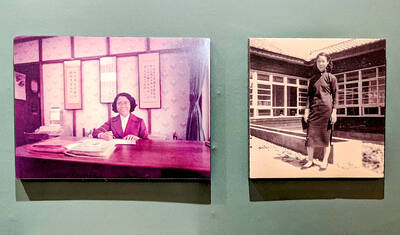
Aug. 11 to Aug. 17 Those who never heard of architect Hsiu Tse-lan (修澤蘭) must have seen her work — on the reverse of the NT$100 bill is the Yangmingshan Zhongshan Hall (陽明山中山樓). Then-president Chiang Kai-shek (蔣介石) reportedly hand-picked her for the job and gave her just 13 months to complete it in time for the centennial of Republic of China founder Sun Yat-sen’s birth on Nov. 12, 1966. Another landmark project is Garden City (花園新城) in New Taipei City’s Sindian District (新店) — Taiwan’s first mountainside planned community, which Hsiu initiated in 1968. She was involved in every stage, from selecting
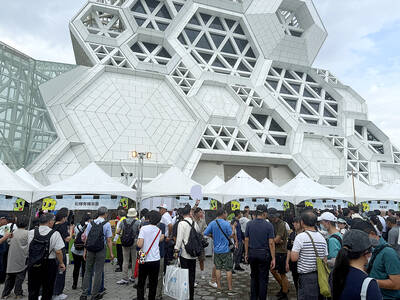
The latest edition of the Japan-Taiwan Fruit Festival took place in Kaohsiung on July 26 and 27. During the weekend, the dockside in front of the iconic Music Center was full of food stalls, and a stage welcomed performers. After the French-themed festival earlier in the summer, this is another example of Kaohsiung’s efforts to make the city more international. The event was originally initiated by the Japan-Taiwan Exchange Association in 2022. The goal was “to commemorate [the association’s] 50th anniversary and further strengthen the longstanding friendship between Japan and Taiwan,” says Kaohsiung Director-General of International Affairs Chang Yen-ching (張硯卿). “The first two editions
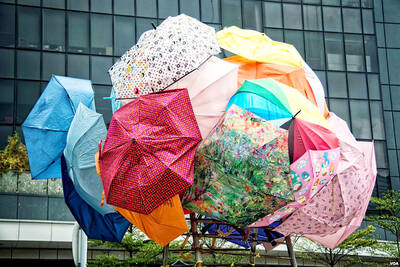
It was Christmas Eve 2024 and 19-year-old Chloe Cheung was lying in bed at home in Leeds when she found out the Chinese authorities had put a bounty on her head. As she scrolled through Instagram looking at festive songs, a stream of messages from old school friends started coming into her phone. Look at the news, they told her. Media outlets across east Asia were reporting that Cheung, who had just finished her A-levels, had been declared a threat to national security by officials in Hong Kong. There was an offer of HK$1m (NT$3.81 million) to anyone who could assist